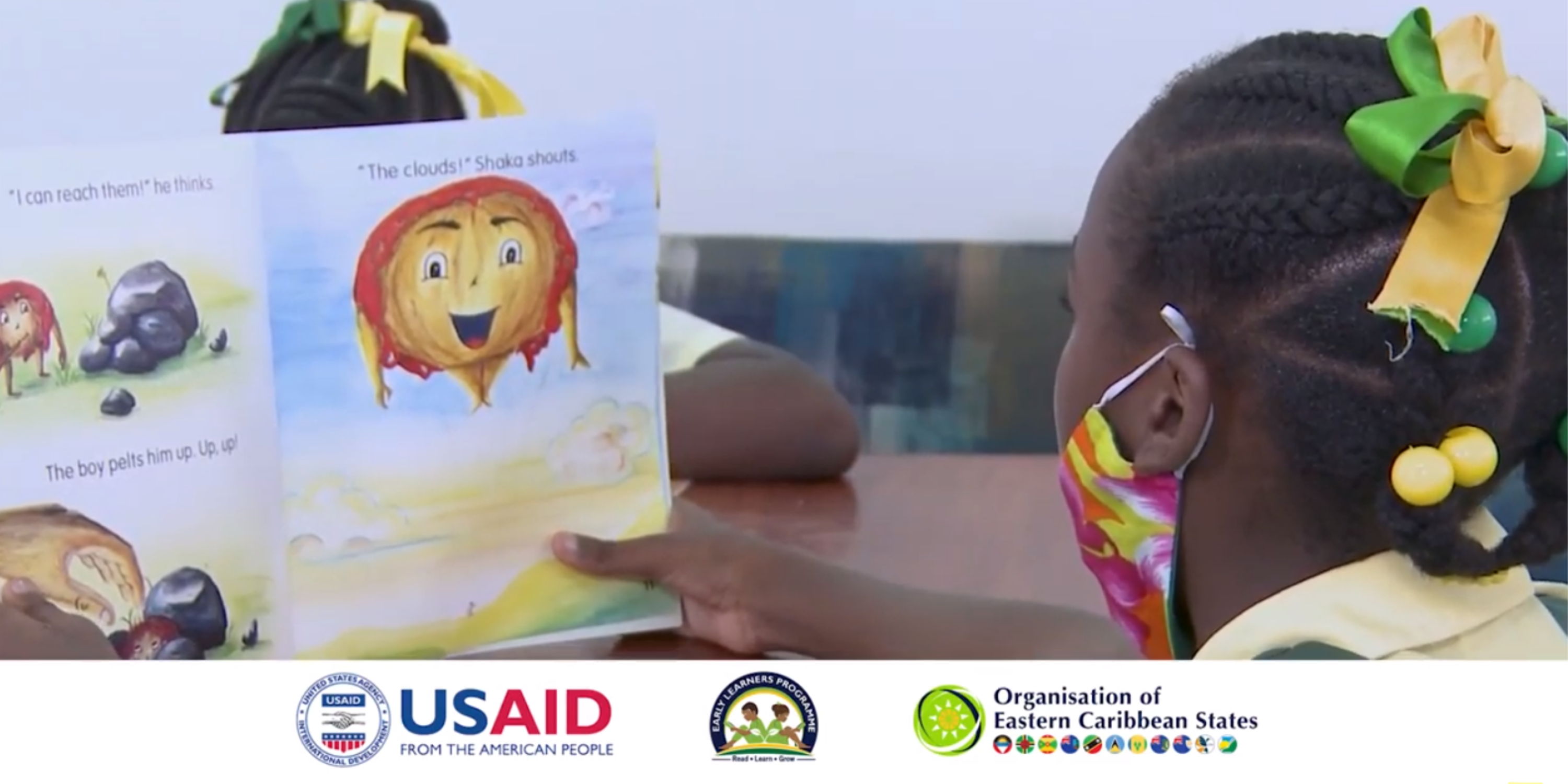Students and parents in Grenada benefit from Early Grade Reading!
OECS/USAID Early Learners Program (ELP) Media Release
St. Georges Methodist School in Grenada was first introduced to the Early Learners Programme in January 2017 and has seen a marked improvement in their early grade students reading levels as a result. Despite trepidation to start, the Principal and teachers embraced the various ELP initiatives and incorporated those into classroom instruction over a three and a half year period. Teachers and parents noted significant improvement in the students’ interest and abilities in reading from Kindergarten to Grade 3.
According to Principal Mrs. Lollita Gibson,
“Generally, we have had a lot of struggles with reading in the past, and the ELP brought new enthusiasm and motivation to the teachers and the parents. Students are accepting more responsibility for their learning because they are always engaged. Their interest in books has grown with new materials provided by the ELP that are appropriate and relevant to their age level - which helps to sustain their attention. There is a new excitement around reading at our school and it is in large part, due to the many new reading instruction methods learned and implemented.”
With consistent support and coaching from the ELP Coordinators, teachers were able to implement specific initiatives that helped with their reading instruction. Differentiation was a major change in classrooms whereby teachers grouped students according to reading levels and were able to manage various groups at their respective reading levels simultaneously. Additionally, teachers were paying more attention to comprehension strategies and critical thinking within their reading lessons. The ELP Coordinators played a major role in guiding and mentoring the teachers with these new methods.
One of the teachers from St. Georges Methodist, Mrs. Gillian Findley, and parent Devon Roberts, both cited the joy and interest in reading by their students and child respectively as a significant outcome of the implementation of the ELP tenets in the classroom. The Principal and teachers are committed to the continuation of the new reading instructional methods learned through the ELP programme. As the core elements of ELP continue to be implemented, educators at St. Georges Methodist Primary are looking forward to 100% of their students reading at their appropriate age level.
The OECS/USAID Early Learners Programme team is pleased to see the outcome of the implementation of the ELP in the St. Georges Methodist School. Similar feedback has been received from schools across the OECS which have implemented evidence-based early grade reading instruction and have seen the benefit in their students.
About OECS/USAID ELP:
OECS/USAID Early Learners Programme is a Programme within the Education Development Management Unit of the OECS Commission and was established in March 2015 to improve the reading skills of children in the early primary grades with the goal of providing a foundation for improved learning outcomes and enhanced opportunities for students in the six (6) independent Member States of the OECS (Antigua and Barbuda, The Commonwealth of Dominica, Grenada, Saint Lucia, St. Kitts and Nevis and St. Vincent and the Grenadines). To date the ELP has achieved a number of tangible outputs with over 73,155 learners reached at the Primary level, over 3340 Grades K to 3 teachers supported through job-embedded professional development, 3185 early grade classroom lessons observed and 1630 coaching sessions with teachers have been completed by ELP Coordinators. Further, 60 schools across the Member States have received development grants to support reading enhancement projects and 304,552 teaching and learning materials have been provided to 2582 classrooms across the OECS (over 50,000 books). The OECS/USAID ELP will run through to September 2020 continuing to develop and implement impactful initiatives that advance early grade reading throughout the OECS.


